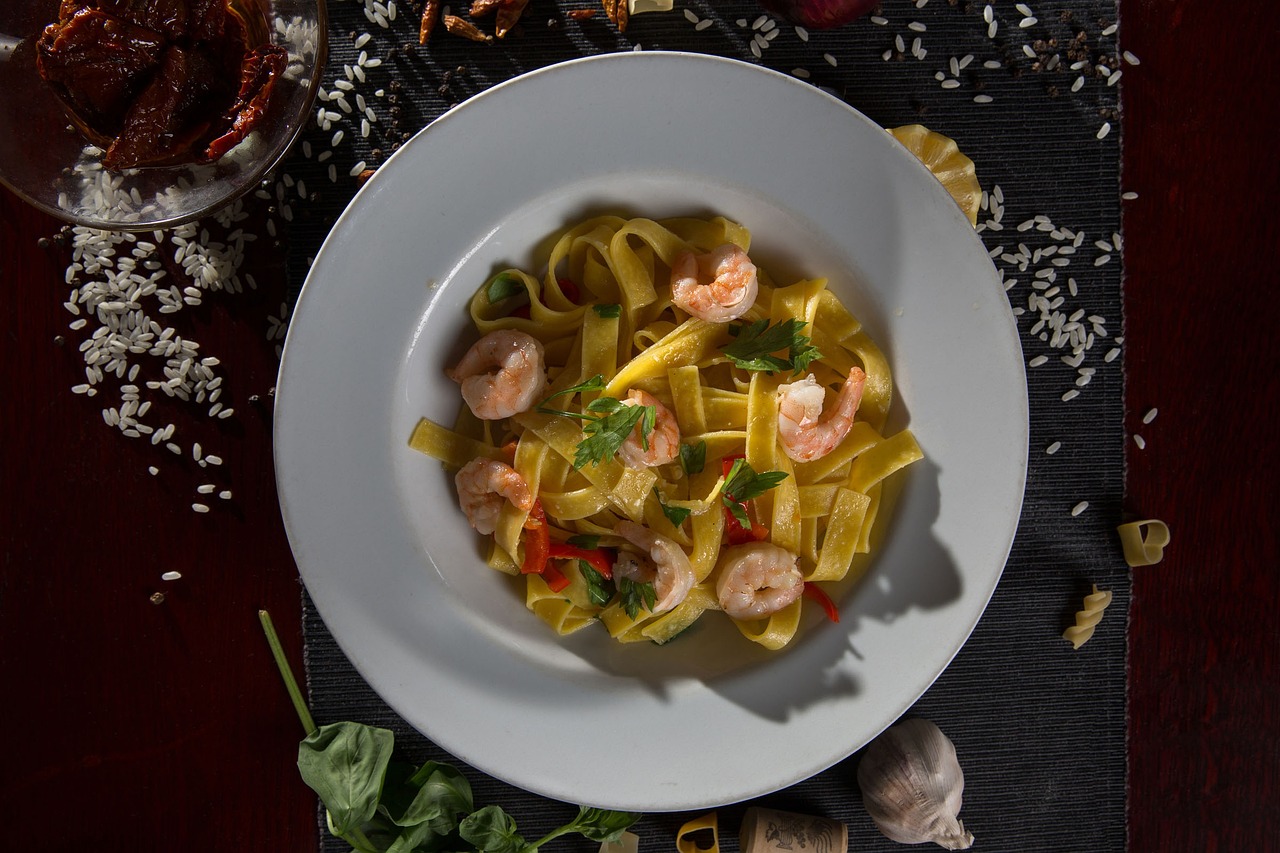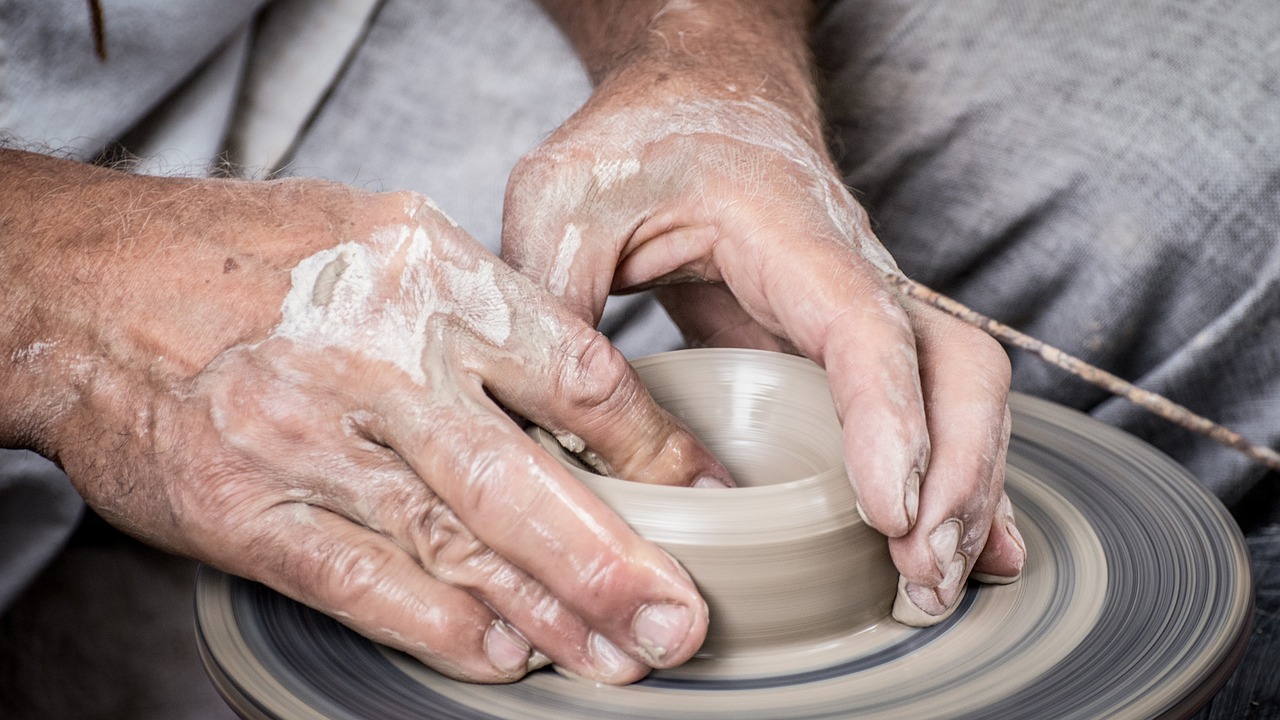How to Incorporate Cultural Experiences into Your Travel Plans
When planning your travels, it's essential to go beyond the typical tourist checklist and delve into the heart of a destination's culture. By incorporating cultural experiences into your itinerary, you can truly immerse yourself in the local way of life and create unforgettable memories. From exploring historical sites to trying authentic cuisine, there are numerous ways to enhance your travel adventures with enriching cultural activities.
Researching cultural sites before your trip is a great way to gain insight into the history and significance of the places you'll visit. Understanding the background of a site can deepen your appreciation and provide context for what you'll see during your travels. Whether it's a centuries-old temple or a UNESCO World Heritage site, each location has a story to tell that can enrich your overall experience.
One of the most vibrant ways to connect with a culture is by participating in local festivals and events. These celebrations offer a firsthand glimpse into traditional music, dance, food, and customs. Whether it's joining a colorful parade, sampling regional delicacies, or learning traditional dances, festivals provide a lively and authentic way to engage with the local community.
Food is a universal language that can bridge cultural divides, and trying authentic cuisine is a delicious way to explore a destination's heritage. From street food stalls to family-run eateries, each bite tells a story of culinary traditions passed down through generations. By indulging in local dishes, you not only satisfy your taste buds but also gain a deeper understanding of a region's culture and history.
Language is another key to unlocking a culture's secrets, and learning basic phrases can open doors to meaningful interactions with locals. Whether it's a simple greeting or a thank you in the local tongue, making an effort to communicate in the native language shows respect for the people you encounter and can lead to enriching exchanges and connections.
To truly immerse yourself in a culture, consider staying in homestays or guesthouses where you can experience daily life through the eyes of locals. This intimate accommodation option allows you to engage with community members, learn about local customs, and gain a deeper appreciation for the traditions that shape a culture.
For those seeking hands-on experiences, participating in cultural workshops offers a unique opportunity to learn new skills and gain insight into traditional practices. Whether it's mastering the art of pottery, trying your hand at traditional dance, or learning the secrets of local cuisine, workshops provide a fun and educational way to connect with a culture on a deeper level.
While popular tourist attractions have their allure, exploring off-the-beaten-path locations can lead to unexpected discoveries and authentic interactions with locals. Venturing beyond the tourist hotspots allows you to uncover hidden gems, experience everyday life in a new light, and forge genuine connections with the people who call a place home.
Art and music are powerful expressions of culture, and engaging with local creative works can offer profound insights into a destination's soul. Whether it's wandering through art galleries showcasing indigenous artists or attending a traditional music performance, immersing yourself in the artistic heritage of a place can be a transformative experience that deepens your connection to the local community.
Finally, it's crucial to respect cultural norms and etiquette when traveling to ensure positive interactions and show reverence for local traditions. By being mindful of customs, dress codes, and social practices, you demonstrate your appreciation for the culture you're visiting and contribute to a harmonious exchange between yourself and the local community.

Researching Cultural Sites
Traveling is more than just visiting tourist attractions; it's about immersing yourself in different cultures. Learn how to enhance your travel experiences by incorporating cultural activities into your itinerary.
Before embarking on your journey, delve into the historical and cultural significance of the sites you plan to visit. Understanding the background of these locations can provide a deeper appreciation for their importance and enrich your overall experience. Researching cultural sites allows you to connect with the past, grasp the stories behind the landmarks, and gain insights that guide you through a meaningful exploration.
Engage with the local community by immersing yourself in their traditions and celebrations. Attending festivals and events offers a firsthand experience of traditional music, dance, food, and customs. By joining in these vibrant gatherings, you not only witness the cultural richness of a place but also create lasting memories filled with joy and camaraderie.
One of the most delectable ways to experience a culture is through its cuisine. Delight your taste buds with local dishes and street food that reflect the flavors and culinary heritage of a region. Sampling authentic meals not only introduces you to new flavors but also opens a window into the heart of a community's gastronomic identity.
Break down language barriers and connect with locals by learning a few essential phrases in the native tongue. Mastering basic greetings and expressions not only facilitates communication but also shows your respect for the local culture. Speaking a few words in the local language can lead to meaningful interactions and forge genuine connections with the people you meet.
Step into the shoes of a local resident by opting for homestays or traditional guesthouses during your travels. Living among community members allows you to witness daily life firsthand, immerse yourself in local customs, and gain a deeper understanding of the culture. Staying in these accommodations offers a more authentic and immersive travel experience.
Expand your cultural horizons by engaging in hands-on workshops that showcase traditional practices and art forms. Whether it's learning to cook regional dishes, crafting indigenous artworks, or mastering traditional dances, these workshops provide a unique opportunity to learn new skills and appreciate the heritage of a place. By participating in cultural activities, you actively contribute to preserving and celebrating local traditions.
Escape the tourist crowds and venture into lesser-known areas to discover hidden gems and authentic encounters. Exploring off-the-beaten-path locations allows you to connect with locals, uncover untold stories, and experience the true essence of a destination. By straying from the well-trodden paths, you may stumble upon unexpected treasures and forge genuine connections with the community.
Immerse yourself in the creative expressions of a culture by exploring its art galleries, museums, and music venues. Appreciating local artwork and music not only enriches your travel experience but also supports talented artists and musicians within the community. Engaging with the artistic soul of a place allows you to glimpse its cultural identity and artistic heritage.
When traveling to a new destination, it's essential to respect the cultural norms, traditions, and etiquette of the local community. By being mindful of social customs and behaviors, you demonstrate your appreciation for the culture and show respect towards its people. Adhering to cultural norms fosters positive interactions, fosters mutual understanding, and helps you navigate unfamiliar territories with grace and sensitivity.

Participating in Local Festivals
Traveling is more than just visiting tourist attractions; it's about immersing yourself in different cultures. Learn how to enhance your travel experiences by incorporating cultural activities into your itinerary.
When traveling, one of the most vibrant ways to experience a new culture is by participating in local festivals. These events offer a glimpse into the heart and soul of a community, showcasing traditional music, dance, food, and customs that have been passed down through generations.
Imagine yourself surrounded by colorful decorations, lively music filling the air, and the aroma of delicious street food wafting from stalls. Attending a local festival allows you to engage with the community in a unique way, forging connections and creating memories that will last a lifetime.
Moreover, festivals provide an opportunity to witness cultural performances that are deeply rooted in history and hold significant meaning for the local population. From intricate dance routines to elaborate parades, each aspect of the festival tells a story and offers insight into the values and beliefs of the culture.
By participating in local festivals, you not only get to enjoy the festivities but also gain a deeper appreciation for the rich tapestry of traditions that make each culture unique. It's a chance to celebrate diversity, embrace new experiences, and broaden your perspective on the world.
Q: How can I find out about local festivals happening during my travels?
A: Research online, check local event calendars, ask your accommodation staff, or inquire at tourist information centers for upcoming festivals in the area you plan to visit.
Q: Are there any etiquette guidelines to follow when attending local festivals?
A: It's essential to respect local customs and traditions. Be mindful of appropriate attire, follow any cultural protocols, and always ask for permission before taking photos or participating in rituals.
Q: Can I participate in festival activities as a foreign visitor?
A: Most festivals welcome visitors to join in the celebrations. Don't be shy to engage with locals, try traditional foods, and immerse yourself in the festive atmosphere.

Trying Authentic Cuisine
Traveling is more than just visiting tourist attractions; it's about immersing yourself in different cultures. Learn how to enhance your travel experiences by incorporating cultural activities into your itinerary.
When traveling, one of the best ways to experience a new culture is through its food. Trying authentic cuisine allows you to taste the flavors of a region and gain insight into the culinary traditions that have shaped the local cuisine.
Imagine sitting at a bustling street food market in Thailand, indulging in a steaming bowl of spicy Tom Yum soup or enjoying freshly made Pad Thai. The explosion of flavors in your mouth is not just a meal; it's a cultural experience that connects you to the heart of Thai culinary heritage.
Similarly, dining at a traditional Japanese izakaya, savoring sushi and sipping on hot sake, transports you to the vibrant streets of Tokyo, where food is not just sustenance but an art form deeply intertwined with Japanese culture and history.
By trying authentic cuisine, you not only satisfy your taste buds but also gain a deeper understanding of the local way of life. Food is a universal language that transcends borders, allowing you to connect with people on a fundamental level and appreciate the rich diversity of our world.
Whether you're sampling street food in Mexico City, exploring the spice markets of Morocco, or learning the art of pasta-making in Italy, each bite is a journey that takes you beyond the plate and into the heart of a culture.
So, next time you travel, don't just eat; immerse yourself in the flavors, aromas, and stories behind each dish. Trying authentic cuisine is not just about food; it's a gateway to a world of cultural exploration and discovery.

Learning Basic Phrases
Traveling is more than just visiting tourist attractions; it's about immersing yourself in different cultures. Learn how to enhance your travel experiences by incorporating cultural activities into your itinerary.
When traveling to a new destination, learning basic phrases in the local language can greatly enhance your experience. Imagine being able to greet locals in their native tongue or order food confidently at a local restaurant. It not only shows respect for the culture but also opens doors to meaningful interactions.
One way to start learning basic phrases is by using simple greetings like "hello," "thank you," and "goodbye." These words are universal and can go a long way in breaking the ice with locals. Additionally, learning essential phrases related to directions, ordering food, and asking for help can make navigating a foreign country much easier.
If you're unsure where to begin, consider enrolling in a language class or using language learning apps to practice pronunciation and vocabulary. Engaging with the local language shows a genuine interest in the culture and can lead to memorable encounters during your travels.
Moreover, practicing basic phrases before your trip can boost your confidence and make you feel more at ease in unfamiliar surroundings. It's like having a key that unlocks a deeper connection with the people you meet along the way.
By taking the time to learn basic phrases, you not only show respect for the local culture but also demonstrate a willingness to step out of your comfort zone and embrace new experiences. So, why not start practicing a few words today and pave the way for a more enriching travel adventure?
Have some burning questions about incorporating cultural experiences into your travel plans? Check out our FAQ section below:
- Q: How can I find local language classes while traveling?
- A: You can search online for language schools or institutes offering short courses for travelers. Additionally, many tourist information centers provide resources for language learning.
- Q: Is it necessary to learn the local language for cultural immersion?
- A: While not mandatory, learning basic phrases can significantly enhance your cultural experience and facilitate communication with locals.
- Q: What are some common cultural norms to be aware of when traveling?
- A: It's essential to research and respect local customs regarding greetings, gestures, dress codes, and dining etiquette to show cultural sensitivity.

Staying in Homestays or Guesthouses
When it comes to immersing yourself in a new culture during your travels, staying in homestays or guesthouses can offer a unique and enriching experience. Unlike traditional hotels, these accommodations provide a more intimate setting where you can interact with locals and gain a deeper understanding of the community you are visiting.
Homestays allow you to live with a local family, giving you a firsthand look at their daily lives, traditions, and customs. It's like stepping into a new world where you can observe and participate in local activities, meals, and celebrations. The hospitality and warmth of your hosts can make you feel like a part of their family, creating a sense of belonging in a foreign land.
Guesthouses, on the other hand, offer a cozy and welcoming environment where you can connect with fellow travelers and exchange stories and tips about your adventures. These establishments often have a more personal touch, with hosts who are eager to share their knowledge of the area and help you navigate the local scene.
By choosing to stay in homestays or guesthouses, you not only support the local economy but also foster cultural exchange and mutual understanding. It's a two-way street where both hosts and guests have the opportunity to learn from each other, breaking down barriers and building connections that transcend language and borders.

Participating in Cultural Workshops
Immersing yourself in cultural workshops is a fantastic way to delve deeper into the traditions and practices of a region. These hands-on experiences offer a unique opportunity to learn directly from local artisans and experts, gaining insight into age-old techniques and art forms. Whether it's mastering the art of traditional cooking, trying your hand at pottery or weaving, or learning indigenous dance moves, cultural workshops provide a rich and interactive way to connect with a culture.
By actively participating in these workshops, you not only acquire new skills but also develop a deeper appreciation for the craftsmanship and creativity embedded in a culture. It's a chance to engage with the community on a personal level, forging connections and understanding the cultural significance behind each craft. The sense of accomplishment and cultural enrichment gained from these workshops can leave a lasting impact on your travel experience, offering a more profound insight into the local way of life.
Moreover, cultural workshops often take place in intimate settings, allowing for meaningful interactions with instructors and fellow participants. The shared experience of learning and creating together fosters a sense of camaraderie and mutual understanding, transcending language barriers and cultural differences. It's a collaborative journey of exploration and discovery, where you not only learn about a culture but also contribute to its preservation by actively engaging in its traditions.

Exploring Off-the-Beaten-Path Locations
When it comes to traveling, stepping off the beaten path can lead to some of the most memorable and authentic experiences. Exploring off-the-beaten-path locations allows you to uncover hidden gems and connect with the local culture in a more meaningful way. These lesser-known areas often offer a glimpse into the everyday life of the residents, providing a unique perspective that goes beyond the typical tourist attractions.
Imagine wandering through quaint villages tucked away from the bustling crowds, stumbling upon charming cafes where locals gather, or stumbling upon a hidden beach with crystal-clear waters and no tourists in sight. These are the moments that make travel truly special and allow you to create lasting memories that go beyond just taking photos at popular landmarks.
By venturing off the beaten path, you have the opportunity to interact with locals on a more personal level, gaining insights into their daily routines, traditions, and way of life. Whether it's striking up a conversation with a shop owner, joining in on a traditional ceremony, or simply observing daily activities in a small town, these experiences can enrich your understanding of the destination and leave a lasting impact.
Exploring off-the-beaten-path locations also offers a sense of adventure and discovery, as you never know what hidden treasures you might stumble upon. From ancient ruins tucked away in the jungle to serene hiking trails leading to panoramic viewpoints, these hidden gems are often the highlight of any trip for those willing to seek them out.
So, next time you plan your travels, consider veering off the well-trodden tourist path and embarking on a journey of exploration and discovery. Who knows what hidden wonders await just around the corner, ready to surprise and delight those willing to step off the beaten path?

Engaging with Local Art and Music
Engaging with local art and music is a fantastic way to delve into the heart and soul of a culture. When you immerse yourself in the artistic expressions of a community, you open yourself up to a world of creativity and emotion that transcends language barriers.
Art galleries offer a glimpse into the visual arts of a region, showcasing the talent and perspectives of local artists. From traditional paintings to contemporary installations, each piece tells a story and provides insight into the cultural landscape.
Similarly, museums serve as repositories of history and heritage, housing artifacts and exhibitions that reflect the identity of a people. By exploring these cultural institutions, you can deepen your understanding of the traditions and customs that shape a society.
Attending music venues allows you to experience the rhythmic heartbeat of a culture through melodies and harmonies. Whether it's traditional folk music, classical compositions, or modern genres, music has the power to evoke emotions and connect individuals across boundaries.
Supporting local artists and musicians not only enriches your travel experience but also contributes to the preservation and promotion of cultural heritage. By purchasing artwork or attending performances, you help sustain the creative community and ensure that these artistic traditions endure for future generations.
Engaging with local art and music is not just about observation; it's about participation and appreciation. Take the time to interact with artists, attend live performances, and immerse yourself in the vibrant creative scene of a destination. Let the colors, sounds, and stories of a culture captivate your senses and leave a lasting impression on your journey.

Respecting Cultural Norms and Etiquette
Respecting cultural norms and etiquette is essential when traveling to a new destination. By understanding and following local customs, you not only show respect for the culture but also ensure a positive interaction with the local community. One important aspect of respecting cultural norms is dressing appropriately. In some countries, modest clothing is expected, especially when visiting religious sites or rural areas. It's crucial to research and adhere to the local dress code to avoid unintentionally causing offense.
Another key element of cultural respect is greeting customs. Different cultures have varying ways of greeting others, such as bowing, handshakes, or cheek kisses. Taking the time to learn and practice these greetings shows that you value and appreciate the local traditions. Additionally, being aware of gestures that may be considered rude or offensive in certain cultures is vital to avoid misunderstandings.
When dining in a foreign country, understanding table manners is essential. For example, in some cultures, it's polite to leave a small amount of food on your plate to indicate that you are full, while in others, finishing everything is a sign of appreciation. Being observant of how locals behave during meals and following their lead can help you navigate dining etiquette smoothly.
Respecting cultural norms also extends to communication styles. In some cultures, direct communication is valued, while in others, indirect or subtle language is preferred. Adapting your communication style to match the local norms can enhance your interactions and prevent misunderstandings. Additionally, being mindful of topics that may be sensitive or taboo in a particular culture is crucial to avoid unintentionally causing offense.
Overall, respecting cultural norms and etiquette is about approaching a new culture with an open mind and a willingness to learn. By showing respect for local customs, traditions, and values, you not only enrich your travel experience but also foster positive relationships with the people you meet along the way.
Frequently Asked Questions
- How can I incorporate cultural experiences into my travel plans?
To incorporate cultural experiences into your travel plans, you can start by researching cultural sites before your trip, participating in local festivals, trying authentic cuisine, learning basic phrases of the local language, staying in homestays or guesthouses, participating in cultural workshops, exploring off-the-beaten-path locations, engaging with local art and music, and respecting cultural norms and etiquette.
- Why is it important to engage with local communities during travel?
Engaging with local communities during travel allows you to gain a deeper understanding of the destination, experience authentic cultural practices, support local economies, and foster meaningful connections with residents. It enriches your travel experience and promotes cultural exchange.
- How can I show respect for the culture of the places I visit?
To show respect for the culture of the places you visit, you can research and follow local customs and etiquette, learn basic phrases in the local language, dress appropriately, support local businesses, be open-minded and curious, and always approach interactions with humility and a willingness to learn.



















